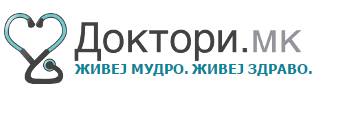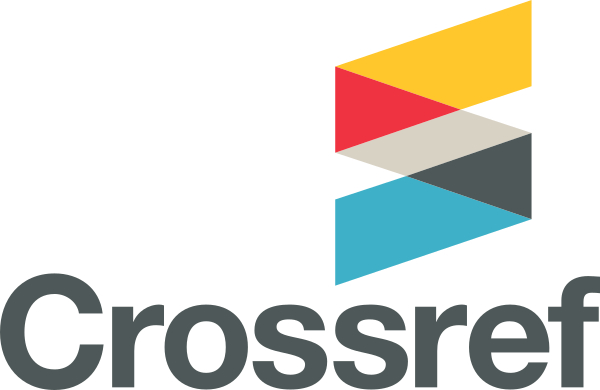JSER Policies
JSER Online
JSER Data
Frequency: quarterly
ISSN: 1409-6099 (Print)
ISSN: 1857-663X (Online)
Authors Info
- Read: 22482
Ivan DVOJAKOV
Marika
SOTIROVSKA-SIRVINI
Gorica
LEVENSKA
EARLY
DETECTION OF CHILDREN WITH DEVELOPMENTAL DIFFICULTIES AS BASE FOR SUCCESSFUL
REHABILITATION
In the composition of one well
imagined axis, the approach towards the children with developmental
difficulties, integrated rehabilitational system, the most important place
takes the basic element, the early and adequate detection and evidence of these
children, as essential condition for successful realization of the remained
segments in the whole system i. e., building of the whole strategy of the
children with developmental difficulties.
The main goals of this presentation
are:
·
the objective condition in the early detection, evidence and
registration of children with developmental difficulties in the Republic,
focusing on the present deficiency and partial solutions in this moment.
·
our professional and personnel possibilities as base for
improvement of this segment;
·
the objective needs and organizational perspectives for a
global system of detection of children with developmental difficulties;
·
the central evidence of these children, excluding the
elements of improvisation and partial working.
Absence of one unique methodology of
detection, registration and central evidence of these children although there
is a legislative regulation for their registration (in the centers for social
affairs) it puts us in a position only to predict the expected number of
children with developmental difficulties ( according to WHO, about 5-7 % in
pre-school population ).
The results of the commissions for
categorization, as well as the number of persons with developmental
difficulties, can’t be equal with the real position of early detected and evidenced, at this
moment.
Stressing the importance of the
early detection and evidence, as a segment in the preventive health care, from
one point of view, and pointing out the insufficient engagement of the health
workers (doctors), from another point of view, automatically gives the
conclusion, that this problem must be solved
at health level, giving directions and education of the teaching staff,
on the level of health care of children, prime health care institutions which
get in contact with every child (regular examinations, immunization, medical
check-ups etc.).
With the opening of the
Developmental advisory centers in Skopje and Bitola, the condition is getting
better. The Developing advisory centers which are product of the pediatrical services in the prime health
care, appears as “ core “ of the organized approach in the early detection,
evidence and following the children born
with some factor of risk and children with developmental difficulties.
The concept of the Developmental
advisory centers allows animation and involvement of all the segments,
necessary for detection, evidence and registration of children riskborn and children with developmental difficulties,
according to equal standards, criteria and methodology of work of GAK and the central register of the risk born
and impaired children for the whole Republic. Also the involvement of the
commissions for categorization and the centers for social affairs.
Thus, set concept requires
legislative regulations, obtaining legislative obligation of every subject and continuity in the work.
The perspective essential
obligations which would be performed in the most rational way and step by step,
only if they become a legislative regulations are:
I-st step:
Preparation and constitution of necessary documentation on the level of
the Republic.
II-nd step: Establishment of regional developmental
advisory centers ( gradually, according to the needs and possibilities ) in the
larger cities, with regional registers of risk and impaired children, team work
and equal methodology for the whole Republic.
III-rd
step: Central evidence, linking of the regional registers in the Developmental advisory centers, in one
central Republic register of risk born and children with developmental
difficulties.
This project represents a very
complex and hard work. In the frames of realization it requires compulsory
participation of the Ministry of Health, Ministry for labor and social affairs,
socio-humanitarian organizations. It will be necessary to establish an
coordinative body from the neonatal participants and before all, for coordination,
following, realization and evaluation of the results from the whole project.
The effects of the successful
realization of this concept, will be seen in overpassing of some weakness in its segment, and the same
time will present the real timely, and modern approach in the “syndrome” child
with developmental difficulties.
Share Us
Journal metrics
-
 SNIP 0.059
SNIP 0.059 -
 IPP 0.07
IPP 0.07 -
 SJR 0.13
SJR 0.13 -
 h5-index 7
h5-index 7 -
 Google-based impact factor: 0.68
Google-based impact factor: 0.68
10 Most Read Articles
- PARENTAL ACCEPTANCE / REJECTION AND EMOTIONAL INTELLIGENCE AMONG ADOLESCENTS WITH AND WITHOUT DELINQUENT BEHAVIOR
- RELATIONSHIP BETWEEN LIFE BUILDING SKILLS AND SOCIAL ADJUSTMENT OF STUDENTS WITH HEARING IMPAIRMENT: IMPLICATIONS FOR COUNSELING
- EXPERIENCES FROM THE EDUCATIONAL SYSTEM – NARRATIVES OF PARENTS WITH CHILDREN WITH DISABILITIES IN CROATIA
- INOVATIONS IN THERAPY OF AUTISM
- AUTISM AND TUBEROUS SCLEROSIS
- DIAGNOSTIC AND TREATMENT OPTIONS IN AUTISTIC SPECTRUM DISORDERS – AN OVERVIEW
- THE DURATION AND PHASES OF QUALITATIVE RESEARCH
- REHABILITATION OF PERSONS WITH CEREBRAL PALSY
- DISORDERED ATTENTION AS NEUROPSYCHOLOGICAL COGNITIVE DISFUNCTION
- HYPERACTIVE CHILD`S DISTURBED ATTENTION AS THE MOST COMMON CAUSE FOR LIGHT FORMS OF MENTAL DEFICIENCY
















